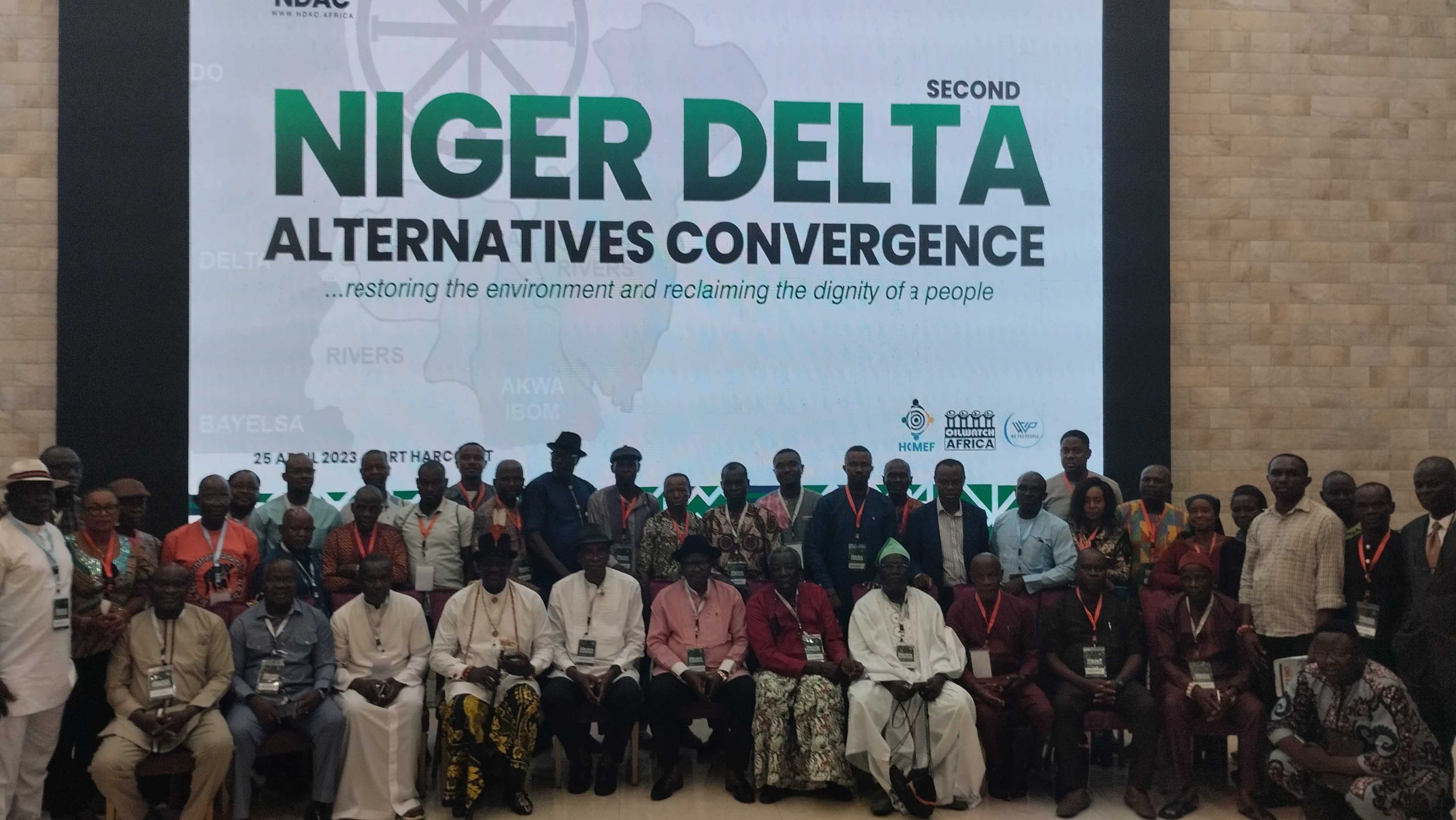By Jonathan Ugbal
Stakeholders drawn from different walks of life in the Niger Delta on Tuesday in Port Harcourt, the Rivers State capital called for proper attention to the ecological issues bedeviling the region at the second edition of the Niger Delta Alternatives Convergence, NDAC.
Key among the issues is the divestments carried out by transnational oil and gas companies, the environmental degradation occasioned by oil and gas activities as well as deforestation as well as the lack of budgetary provision by the Nine States of the region to tackle coastal and other forms of flooding, despite the warnings of relevant authorities.
The convergence is an initiative of the Health of Mother Earth Foundation, HOMEF, We The People, WTP, and Oil Watch Africa. Dr. Nnimmo Bassey, HOMEF’s founder, said the convergence is a platform to brainstorm, build networks and strategize to proffer solutions to the region’s challenges.
He commended those who have taken the region’s struggle as a personal fight and urged them to keep going even as he hoped that the conversations will lead to sustainable peace brought by Justice to the deprived people of the region.
Ken Henshaw, the Executive Director of WTP decried the seeming resource curse the region has always suffered.
“Never has oil benefits gone to oil-producing communities directly. The best we have had is the 13 percent derivation which is still not managed properly,” Comrade Henshaw said while presenting the NDAC manifesto agreed upon from the first convergence held in Uyo, the Akwa Ibom State capital last year.
He insisted that “the call for socio-ecological justice is one to be taken seriously,” even as he lamented that the State governments in the region have failed to allocate resources to tackle the issue of floods which affected all nine States last year. He further described as “laughable,” the claim that the floods were solely caused by the release of water from the Lagdo dam in northwest Cameroon.
The Chairman of the occasion, HRH Alabo Dagogo Fubara who was represented by HRH Suanu Baridam said there was a need to take the issues raised in the manifesto seriously as the region has found itself where indigents were in a situation to be wiped out one after the other.
In his address, Prof. Sofiri Peterside said the attempts by transnational oil companies to divest were basically attempts to avoid engagements with host communities and Corporate Social Responsibility.
Professor Peterside who queried what will happen to the Global Memorandum of Understanding between host communities as well as oil and gas coys, said the divestment plans simply meant, “moving away from accountability as they no longer need to pass through communities to get to shallow waters and others.”
Also, he criticized the Petroleum Industry Act which he said has helped in compounding the problems of the region, especially via its host communities development trust fund provision.
Similarly, the spokesperson of the Pan Niger Delta Forum, PANDEF, Hon. Ken Robinson said the forum has since accepted the manifesto and urged all actors seeking for socio-ecological justice in the region to act and speak in one voice as discordant tunes have helped destroy the region.
The stakeholders are expected to produce a communiqué that will contain the arguments, debates, and agreements from the second edition of the convergence.
